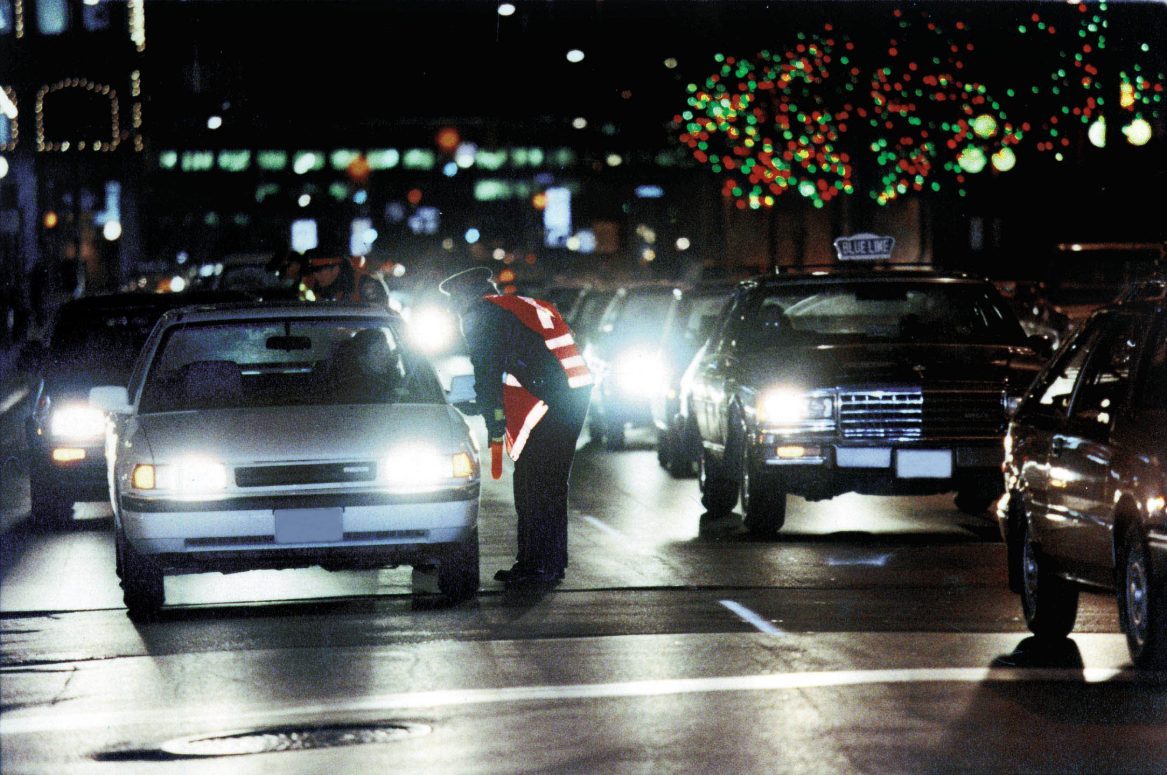You are here
Home 🌿 Marijuana Politics 🌿 Despite immediate roadside prohibitions, B.C. still grappling with impaired driving 🌿Despite immediate roadside prohibitions, B.C. still grappling with impaired driving

Despite more measures to deter drug driving being in place than ever before in B.C., stats released by the Insurance Corporation of British Columbia (ICBC) show no meaningful reduction in impaired driving-related fatalities since immediate roadside prohibitions (IRP) came into force just shy of a decade ago.
The IRP, which took effect in 2011, gives police the power to confiscate a driver’s licence for 24 hours or more if officers have good reason to suspect a driver is under the influence of drugs or alcohol (and longer periods — up to 90 days — for alcohol-intoxicated drivers, per the province’s Motor Vehicle Act).
Still, the decade-old rules don’t seem to have resulted in fewer impaired drivers on the road, although 2019 statistics are pending.
B.C. recorded an average of 68 fatalities annually from accidents where contributing factors included drugs and/or alcohol, and impaired driving was related to almost a quarter (24 percent) of all car crash deaths in the province.
Unsurprisingly, weekends seem to pose the greatest risk for accidents involving intoxicated drivers, with 56 percent of impaired-related crashes occurring on Friday, Saturday or Sunday, and 38 percent occurring between 9 pm and 3 am.
The stats suggest the vast majority of impaired drivers on B.C. roads — up to 68 percent — are male, with youths between the ages of 16 and 25 accounting for 26 percent of alcohol or drug-related crashes. This toll is despite the age group accounting for just 13 percent of all drivers in B.C.

Since December 2018, police have had the right to demand breathalyzer tests from any drivers at ride checks or who are caught violating traffic laws. / Photo: Getty Images Getty Images
Since December 2018, police have had the right to demand breathalyzer tests from any drivers at ride checks or who are caught violating traffic laws, whereas the previous rules dictated that authorities have reasonable suspicion that a driver had been consuming alcohol to impose a breathalyzer.
Advocacy groups like MADD are demanding that drug-impaired drivers face the same prohibitions as those impaired by alcohol, and want stricter laws. These include zero tolerance for drugs or alcohol for drivers with less than five years of experience or those aged 21 or younger.
For now, users of drugs and alcohol are advised to plan ahead and use a designated driver, taxi, rideshare or public transportation if they plan on consuming, to ensure the safety of themselves and others on the road.
420 Intel is Your Source for Marijuana News
420 Intel Canada is your leading news source for the Canadian cannabis industry. Get the latest updates on Canadian cannabis stocks and developments on how Canada continues to be a major player in the worldwide recreational and medical cannabis industry.
420 Intel Canada is the Canadian Industry news outlet that will keep you updated on how these Canadian developments in recreational and medical marijuana will impact the country and the world. Our commitment is to bring you the most important cannabis news stories from across Canada every day of the week.
Marijuana industry news is a constant endeavor with new developments each day. For marijuana news across the True North, 420 Intel Canada promises to bring you quality, Canadian, cannabis industry news.
You can get 420 Intel news delivered directly to your inbox by signing up for our daily marijuana news, ensuring you’re always kept up to date on the ever-changing cannabis industry. To stay even better informed about marijuana legalization news follow us on Twitter, Facebook and LinkedIn.




